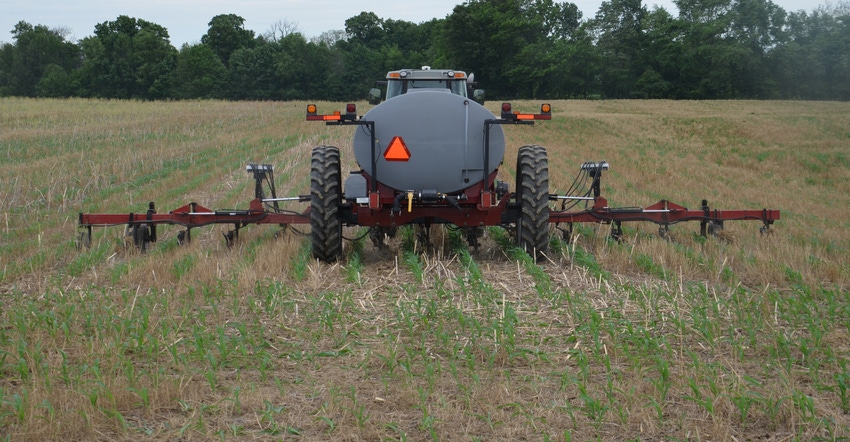July 2, 2020

Who will replace the dedicated conservation professionals who advise you on everything from cover crops to grass waterways once they retire? Fortunately, the Natural Resources Conservation Service has this need on its radar. Recently, NRCS, USDA’s Sustainable Agriculture Research and Education Program, and an alliance of nine Midwestern community colleges, called C2A3, entered a cooperative agreement that devotes nearly $530,000 to these colleges over the next four years.
The goal is ensuring quality education and training of budding field practitioners — the people you will visit for advice on conservation and who will visit your farm. Kraig Bowers, program chair for agriculture at Ivy Tech’s Lafayette, Ind., campus, answers basic questions about the project:
Who makes up the other colleges in this consortium? Central Lakes College in Minnesota, Clark State in Ohio, Illinois Central College, Ivy Tech Community College-Lafayette, Northcentral Technical College in Wisconsin, Northeast Community College in Nebraska, Northeast Iowa Community College, Richland Community College in Illinois, and North Dakota State College of Science are the nine members of the Community College Alliance for Agriculture Advancement. For Ivy Tech, it is only the Lafayette campus.
It sounds like this is for colleges with farms where things can be demonstrated. What is included in the plans? The specific concerns of soil compaction, organic matter depletion, excess nutrients in surface water, excess nutrients in groundwater, undesirable plant productivity and health, and excessive plant pressure were identified to be addressed on our crop fields. To do so, we will be implementing NRCS soil health management systems practices of cover crops, reduced till and nutrient management.
A meeting will be held with NRCS to complete a soil health conservation plan that is specific to the 61.5 acres of farm ground operated by our college. Reduced tillage will be used across the entire farm, and cover crop species that are best suited to the farm’s resource concerns will be planted using the college’s interseeder, with one area set aside specifically for side-by-side test strips of cover and non-cover crop practices.
Are you using practices other than cover crops? Yes. A nutrient management plan will be developed and implemented, using test results from the project. Testing procedures using NRCS protocols will be utilized to collect and analyze data such as soil fertility, soil pH, organic matter, biomass, soil compaction, microbial activity, soil respiration, wet aggregate stability, soil temperature, soil moisture, weed pressure and insect pressure. The results of these tests will be reported annually to NRCS.
How will the interseeder be used? It will solely be used in this project and will provide the opportunity for unique projects, such as comparison of interseeding during early cash-crop growth stages compared to postharvest, as well as comparisons of interseeding at different stages of cash-crop growth.
Three field days will be held annually, starting in 2021, for conservation employees, farmers, agribusiness and students, where the data will be made available, along with presentations and demonstrations.
Will this help students participate in learning activities they couldn’t do otherwise? This agreement will provide many opportunities for student learning related to conservation practices, especially with applied research projects using cover crops and collecting and analyzing soil health data. The expertise NRCS brings to the table will ensure that students learn how to collaborate to develop and implement a conservation plan with best recommended practices.
You May Also Like




